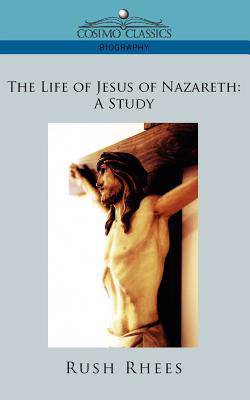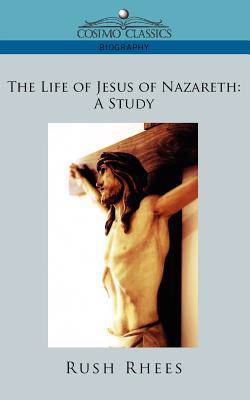
- Afhalen na 1 uur in een winkel met voorraad
- Gratis thuislevering in België vanaf € 30
- Ruim aanbod met 7 miljoen producten
- Afhalen na 1 uur in een winkel met voorraad
- Gratis thuislevering in België vanaf € 30
- Ruim aanbod met 7 miljoen producten
Zoeken
Omschrijving
Without robbing boyhood days of their naturalness and reality, we may be sure that long before Jesus knew how and why he differed from his fellows he felt more or less clearly that they were not like him. The resulting sense of isolation was a school for self-mastery, lest isolation foster any such pride or unloveliness as that with which later legend dared to stain the picture of the Lord's youth. -from "The Growth of Jesus" This fanciful 1900 "biography" of the central figure of one of the world's great religions is based as much upon the author's faith as it is any Scriptural or historical sources-indeed, Rhees calls it more "a study rather than a story... a companion to the reading of the gospels." Believers will find comfort in Rhees's soothing, authoritative prose, but this is a vital work for all those who seek to understand the complex society of contemporary Christianity. RUSH RHEES was the third president of the University of Rochester. He wrote extensively on ethics, philosophy, and religion; among his works are Wittgenstein and the Possibility of Discourse and Without Answers.
Specificaties
Betrokkenen
- Auteur(s):
- Uitgeverij:
Inhoud
- Aantal bladzijden:
- 340
- Taal:
- Engels
Eigenschappen
- Productcode (EAN):
- 9781596057418
- Verschijningsdatum:
- 1/12/2005
- Uitvoering:
- Paperback
- Formaat:
- Trade paperback (VS)
- Afmetingen:
- 127 mm x 203 mm
- Gewicht:
- 367 g

Alleen bij Standaard Boekhandel
+ 43 punten op je klantenkaart van Standaard Boekhandel
Beoordelingen
We publiceren alleen reviews die voldoen aan de voorwaarden voor reviews. Bekijk onze voorwaarden voor reviews.











